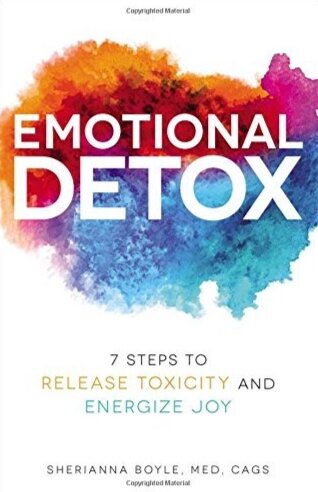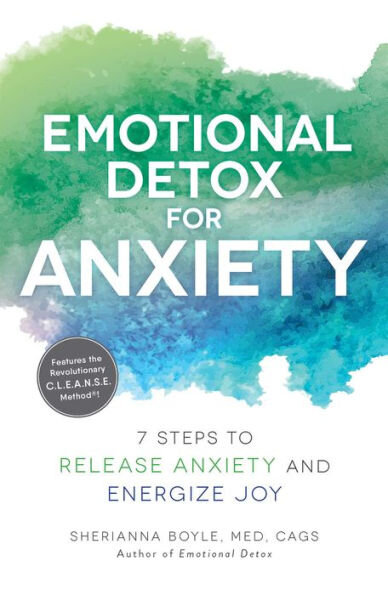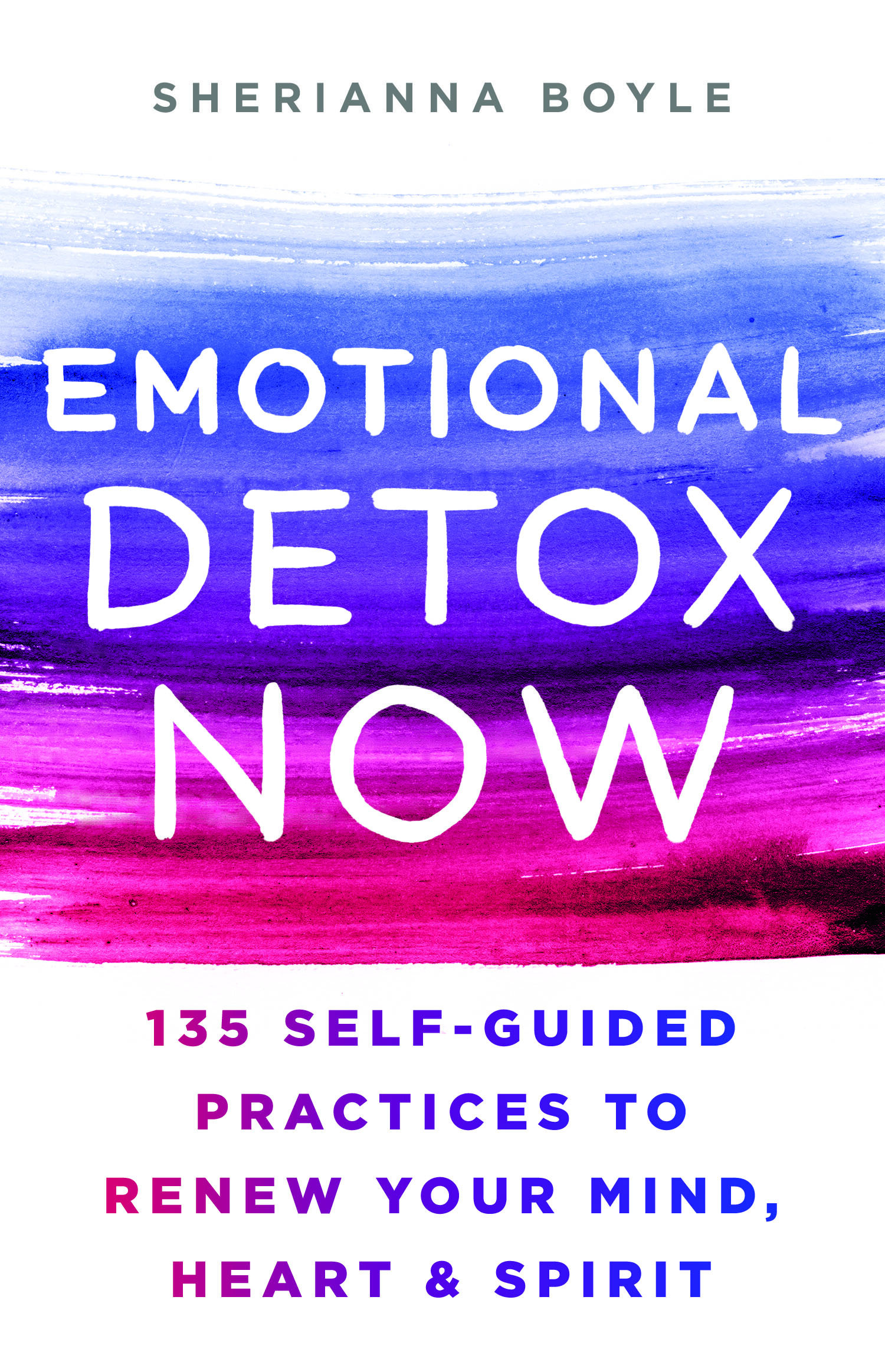What is an Emotional Detox?
By Sherianna Boyle, MEd CAGS, Author of The Emotional Detox Books
Note from the author: When the first Emotional Detox book was published in 2018, I did not anticipate how deeply the innovative practices would resonate within mental health and spiritual communities. I am honored that other practitioners and platforms have widely shared my Emotional Detox work. See PsychCentral, Thrive Global, or Spirituality & Health for more information. An excerpt from the first book is available on Kripalu Center.
What is an Emotional Detox?
An Emotional Detox—or an emotional cleanse—is similar to a physical detox, only instead of getting rid of chemicals in your body you detox reactions, or the way you react to your feelings. An Emotional Detox is based on this mindset: all your emotions are good, so long as they are processed. Emotional detoxing is not about getting rid of your emotions it is about getting to them.
What Is CLEANSE?
Cleanse is the acronym for the 7-step mindful process for learning how to process what you feel. The process is painless and takes less than ten minutes to implement. It is featured in all the Emotional Detox books.
The Cleanse Method® provides an ideal structure for individuals who struggle with attention, anxiety, poor self-esteem and self-doubt. When it comes to changing the brain and bodily reactions, consistency is key. While there are many variations (tools & strategies) of the Cleanse, the order of the emotional cleansing steps stays the same.
The Cleanse Method® steps include:
Clear Reactivity
Look Inward
Emit
Activate
Nourish
Surrender
Ease
Download a free 5-minute Daily Cleanse meditation as a sample.
Why do we need to detox?
We are a nation of emotional suppressors. We reinforce and reward individuals for suppressing what they feel. Keep your mouth shut, go along (even if it doesn’t feel right), and you are likely to be seen as a good sport or a team player.
Some people manage pressure by choosing to remain silent, others find ways to keep their emotions at bay (e.g. food, drinking), while some are becoming more outspoken. On the outside these behaviors may appear different, yet on the inside this is not the case. This is happening at a cost, as our nation faces some serious mental health challenges.
According to The National Institute of Mental Health:
1 out of 5 adults in the US are suffering from a mental illness
7.7 million of individuals suffering from mental illness are children
People with depression have a 40% higher risk of developing cardiovascular and metabolic diseases than the general population.
How can an Emotional Detox help you?
You can relieve yourself from pent up emotions easily and naturally by incorporating Emotional Detox practices and Cleanse into your daily routine. If you are feeling really overwhelmed or negative then you could benefit from moving through the Cleanse steps more than once a day.
Keep in mind, Cleanse is not intended to cure or treat any mental health condition. It can however, supplement other supports (e.g. therapy) you have in place. It is a mindfulness practice which can interrupt worrisome thoughts (reactions) helping you experience sensations of calm, centered and peace.
Your Emotions
Most of us have been taught how to identify and label an emotion. But labeling does not necessarily lead to feeling. When you view something as fearful, disappointing, or sad does this make you want to feel it? How you perceive something impacts the way you experience it. Our experiences are based on thoughts, feelings, and sensations.
With structure, guidance, support and intention you can form a respectful relationship with your emotions. Rather than pushing them away, allow yourself to feel your emotions without rehashing the past or focusing on the future.
Physical Symptoms and Signs You Need an Emotional Detox
Chronic worrying
Weight gain or loss
Sleepless nights
Chronic tension
Relationship difficulties
Poor immune system
Low energy
Turning to outside substances (alcohol, caffeine)
Rushing
Trouble being in the moment
Easily irritated or impatient
Fear-based thinking
4 Simple Emotional Detox Exercises
Cleanse with a Friend. The book, Emotional Detox Now includes 135 self-guided practices. If you are having a hard time figuring out how to release trapped emotions, consider moving through the exercises with a friend. Read a Cleanse out loud to your friend. Then read it again a second time out loud while implementing the steps. For example, in step one (Clear Reactivity) you will do simple things like stretch your arms overhead to loosen tension in the body. After you move through all of the steps, switch and have your friend read it out loud to you, then implement the steps.
Nature Walks. The earth has a way of rebalancing your energy. Getting outside and moving in nature can be a great way to loosen up your fearful thoughts, ground your energy so you can begin to connect to the present moment. This is key since all emotions are processed in the now.
Take Slow Deep Breaths. To help move toxic reactions through your body it is important that you practice breathing in slowly (preferably through your nose) and out slowly (through your mouth or nose) on a daily basis. This allows you to take in vital oxygen so your cells can begin to communicate more efficiently with one another. It also helps you release trapped emotions and the stale energy inside your organs (lungs) releasing carbon dioxide which can have a rejuvenating effect on your body. As a result, you will likely feel more clear and calm.
Movement Practices. Movement such as Cleanse Yoga® can be a wonderful supplement to your Emotional Detox practice. Yoga is a practice of non-judgement which is ideal for individuals who are looking to process what they feel with love and self-compassion.
If you have any questions about Emotional Detox practices, Emotional Detox Coaching®, or the Cleanse Method,® please contact me directly.







